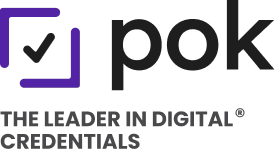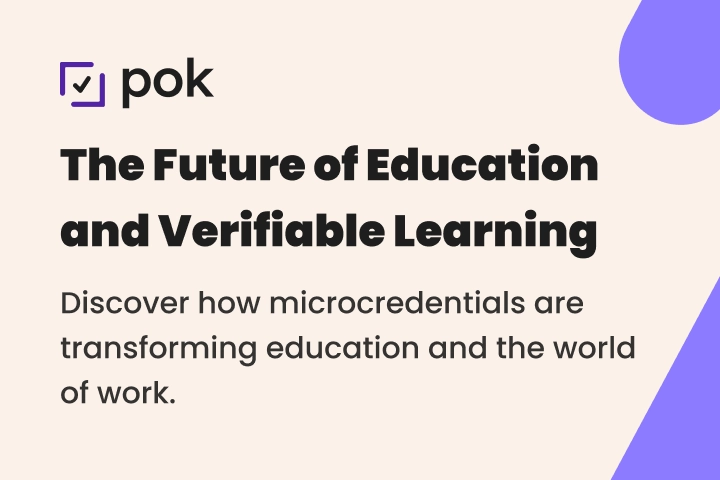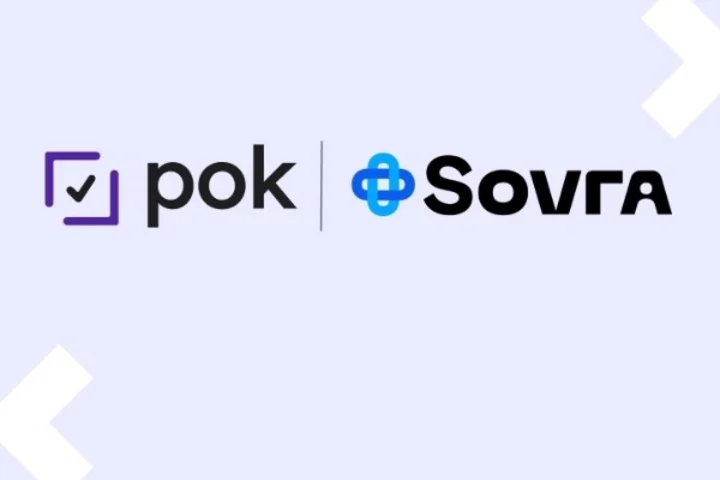For centuries, education was measured in degrees, diplomas, and certificates that summarized years of effort and knowledge.
But the world has changed. Skills evolve faster than educational systems can adapt, and traditional credentials no longer reflect the diversity and depth of today’s learning.
In this new context, microcredentials emerge as the common language connecting education, technology, and work.
The course “Microcredentials and the Future of Verifiable Learning”, led by Guido Grinbaum, founder of POK – Proof of Knowledge, explores how this transformation is redefining the way people learn, grow, and demonstrate their talent.
Available on YouTube and Spotify, the series offers a comprehensive and accessible perspective on a phenomenon already transforming universities, governments, and organizations worldwide.
A New Language for 21st-Century Learning
Microcredentials are not a passing trend. They represent a structural shift in how we understand learning: digital, verifiable credentials issued through blockchain, recognizing specific, measurable, and demonstrable achievements.
Unlike traditional degrees, which focus on final outcomes, microcredentials emphasize the process, the evidence, and real employability.
They allow learners to build flexible pathways, accumulate diverse experiences, and connect formal, non-formal, and workplace learning.
As Guido Grinbaum explains in the first modules of the course,
“The value of a credential lies not only in who issues it, but in the trust, interoperability, and evidence that sustain it.”
POK, as a leading platform for verifiable credentials, makes this possible — ensuring traceability, transparency, and international interoperability under global standards such as Open Badges 3.0, the European Learning Model (ELM), and initiatives led by UNESCO and the OECD.
From Diplomas to Verifiable Evidence
One of the strongest ideas presented in the course is the shift from symbolic recognition to verifiable recognition.
Microcredentials do not replace university degrees; they complement them — making education more dynamic, measurable, and transferable.
Today, a student or professional can validate a specific skill — for instance, Learning Experience Design, Competency-Based Management, or Blockchain in Education — and present it digitally, in a verifiable way, to any organization or employer in the world.
This transforms both the teaching paradigm and the hiring process:
universities recognize specific skills, and companies recognize verifiable value.
Policies, Governance, and Institutional Leadership
The course also explores an aspect often overlooked in technical discussions:
the need for clear institutional policies and strong governance frameworks.
Implementing microcredentials is not just about adopting technology; it is about building a coherent and sustainable educational vision.
Grinbaum explains how leading universities are creating governance units that connect academic, technological, and quality assurance areas, ensuring that every credential issued carries validity, coherence, and purpose.
This institutional approach is essential for ensuring that innovation depends not on individuals, but on robust and scalable processes.
Global Interoperability and Ecosystems of Trust
Throughout the modules, the course shows how international standards now allow a credential issued in Latin America to be recognized across Europe, Asia, or the United States.
Concepts such as interoperability, global stacking, and skills wallets (verifiable skill portfolios) are presented as the foundation of the new global education ecosystem.
In this context, microcredentials become the common currency of talent — portable, verifiable, and globally recognized.
The role of POK is central in this transformation.
Its sovereign blockchain infrastructure — through LACNet and Polygon — enables institutions to issue credentials with full security and regulatory compliance, ensuring universal readability and validation.
From Academic Recognition to Professional Value
Another key theme of the course is the connection between education and work.
Microcredentials act as a bridge between these worlds, translating academic learning into skills that the job market truly values.
This approach, Grinbaum explains, allows institutions to measure the real impact of learning how many students gain new opportunities, promotions, or jobs thanks to their verifiable credentials.
Learning analytics, artificial intelligence, and blockchain traceability are tools that make it possible to measure that impact transparently.
A Look Toward the Future: 2025–2030
The final modules project the trends that will define the future of verifiable learning:
- The integration of artificial intelligence and blockchain.
- National credential ecosystems.
- Mutual recognition between universities and companies.
- Continuous re-accreditation of skills.
- The evolution of education toward decentralized, personalized models.
In Grinbaum’s words:
“The future of education is not about teaching more, but about recognizing better.”
An Invitation to Rethink Education
The course is not only an academic journey but also an invitation to rethink the very meaning of educational recognition.
Each module reflects on how to build a more human, flexible, and purpose-driven system — one in which learning is continuous and demonstrating what has been learned becomes a permanent opportunity.
Microcredentials are not the end of traditional education — they are its natural evolution:
an education based on trust, evidence, and connection.
One Course, One Movement
With more than 1,200 institutions worldwide using the POK – Proof of Knowledge platform, verifiable learning is no longer a trend — it’s a reality.
The course “Microcredentials and the Future of Verifiable Learning” captures this cultural and technological shift guiding universities, companies, and governments toward a common goal:
recognizing knowledge through evidence and trust.
Available for free, the course can be watched on YouTube or listened to on Spotify, and has become a regional benchmark for educational innovation.
🎧 Listen to the full course on Spotify
📺 Watch the full series on YouTube




